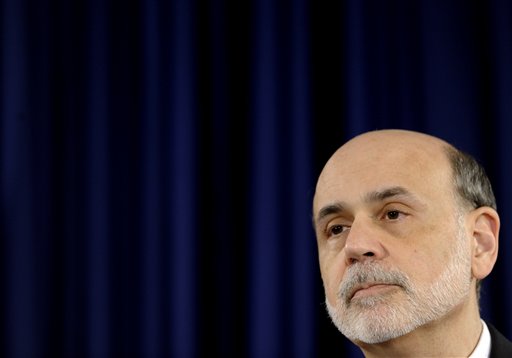
“What is at issue–what is always at issue–is a matter of good judgment, leadership, and institutional backbone. A willingness to act with conviction in the face of predictable political opposition and substantive debate is, as always, a requisite part of a central bank’s DNA.” – Paul Volcker, Speech to the Economic Club of New York, May 29, 2013
The financial markets continue to show heightened volatility in the wake of comments by Fed Chairman Ben Bernanke about “tapering” the central bank’s purchases of Treasury bonds and mortgage securities. The lack of clear direction from economic indicators like unemployment and housing only serves to magnify the uncertainty about the direction of Fed policy, this despite Chairman Bernanke’s stated desire to be “open kimono.”
David Kotok, CEO of Cumberland Advisors, puts it well: “In the last month, we have seen the failure of communication by the leadership of two central banks. Chairman Ben Bernanke gave a message that was obfuscated and misread by markets. His counterpart in Japan did the same. The result was turmoil in markets, increased volatility, and high uncertainty as measured by market-based indicators of risk premia. In the US, the interest rate on a home mortgage is now higher than it has been in months.”
Another factor behind the market angst regarding the timing of a policy change by the Fed is the knowledge that the party is almost over. In a speech last month to the Economic Club of New York, former Fed Chairman Paul Volcker called out Bernanke and his colleagues in terms that only central bankers understand. The quotation above is just part of a tough passage from Volcker’s speech that essentially told Bernanke what we’ve discussed previously on Breitbart, namely that the FOMC has kept rates too low for too long. Again, Chairman Volcker:
Here and elsewhere, the temptation has been strong to wait and see before acting to remove stimulus and then moving toward restraint. Too often, the result is to be too late, to fail to appreciate growing imbalances and inflationary pressures before they are well ingrained. There is something else beyond the necessary mechanics and timely action that is at stake. The credibility of the Federal Reserve, its commitment to maintain price stability and its ability to stand up against pressing and partisan political pressures is critical. Independence can’t just be a slogan. Nor does the language of the Federal Reserve Act itself assure protection, as was demonstrated in the period after World War II. Then, the law and its protections seemed clear, but it was the Treasury that for a long time called the tune.
Volcker’s reference to the Fed’s confrontation with Harry Truman following WW II is entirely on point to the current situation facing the FOMC. The Fed kept rates capped during WW II to help the US government finance the massive military effort. But when the conflict ended, two of the great Fed Chairmen–Mariner Eccles and Thomas McCabe–defied President Truman and raised interest rates to forestall inflation. Even when the Chinese Red Army attacked American military forces in Korea, the Fed under Chairman McCabe stood its ground and eventually won back its independence.
Fed Chairman William McChesney Martin Jr. was picked by Truman in 1951 to replace McCabe and thereby bring the Fed to heel. Instead Martin proved to be an independent man who helped make the central bank independent as well. Martin, for example, defied President Lyndon Johnson and raised interest rates in the 1960s. In each case, the courage of Fed Chairmen like Eccles, McCabe and Martin was the key factor in determining the institutional independence of the US central bank and providing some defense against inflation.
Unfortunately with the subprime debt crisis, the Fed under Bernanke has unilaterally surrendered its independence. “Today, however one parses the term, the Federal Reserve is not now independent,” Gerald O’Driscoll of CATO Institute wrote in the Wall Street Journal. “It has voluntarily relinquished the very independence it secured in 1951 by entering into a modern version of the bond support program. That is what the so-called zero interest rate policy amounts to, reinforced by the quantitative easing implemented through QE1 and QE2.”
Americans forget that for much of the first half of the 20th Century we lived under wage and price controls made necessary by two world wars. Today, however, in peace time the Fed is bailing out Wall Street speculators, zombie banks and most of all, the profligate national Congress with zero interest rates. Do Ben Bernanke and his colleagues on the FOMC have the courage to do the right thing and end the Fed’s extraordinary policy efforts before inflation becomes a serious national problem?

COMMENTS
Please let us know if you're having issues with commenting.